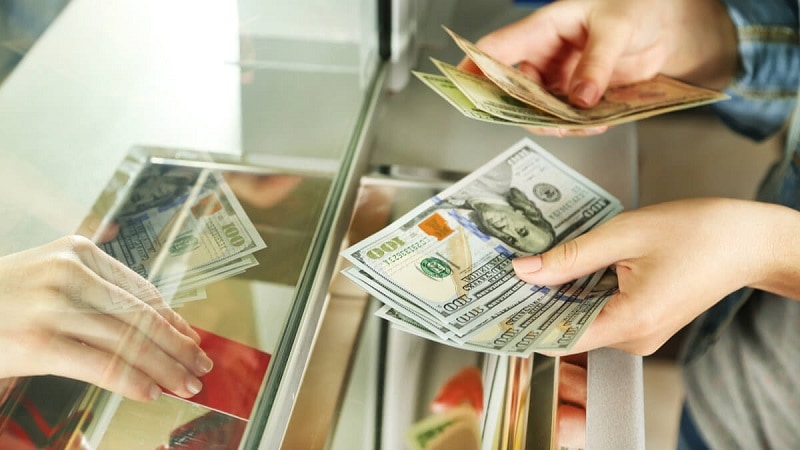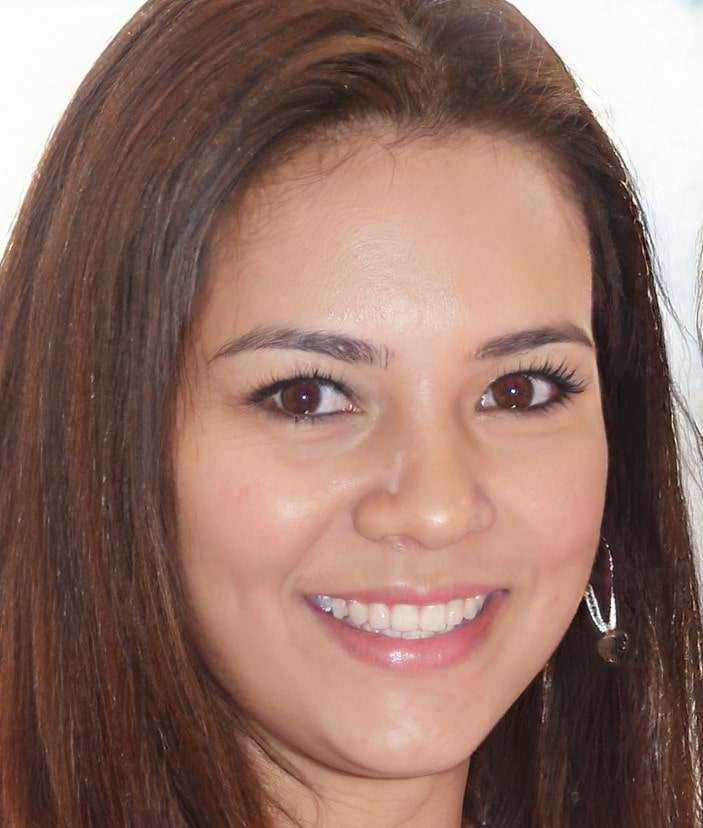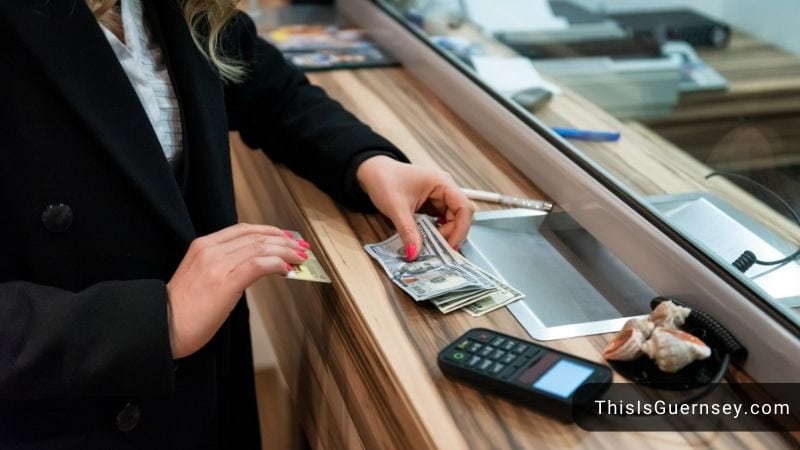Where can I exchange small bills for bigger bills? The answer is there are many places that you can go to exchange small bills for larger bills.
If you want to know the specific places, just read the whole article. This post will give you some information about where you can exchange small bills for larger bills.
Where Can I Exchange Small Bills For Bigger Bills?
There are several places for you to exchange small bills for larger bills. One of the most common places is the bank or credit union. Other possible places include convenience stores, grocery stores, supermarkets, and mom-and-pop stores.
You can go to your nearest bank branches and ask them if they exchange $20s for $1s, or $20s for $100s, or $100s for $20s, etc. Depending on the bank policy, you will have to create a bank account to exchange the bill. The exchange at banks may involve some nominal commission.
Besides the bank, you can go to the post office and use Money orders. It will take issuing fee depending on the dollar amount you order.
Otherwise, you can change the bills at the money changers, with your friends, or with some of your vendors or suppliers.
Additionally, you can try to exchange small bills for larger bills at grocery stores because when some customers bring big bills to buy groceries, they often need smaller bills to make changes.
Can you exchange bills at an ATM?
Yes, you can do this at an ATM that accepts cash deposits.
The limitation on the cash deposit amount varies depending on the bank policies. Most banks will limit the number of bills you can insert at once. For instance, you can deposit up to 30 bills and checks at Wells Fargo. The limit is the same whether there are 30 $1 bills or 30 $100 bills.
Can you go to any bank to exchange bills?
Not really, because banks do not consider this a service provided to their customers, let alone the people who are visitors from the street. The policy may differ from bank to bank. Some may prohibit it, some may ask you to have an account for money exchange, while others leave it up to the teller’s discretion.
Often, most banks will exchange US dollars for different denominations as long as the total amount stays the same and the trade is not one for one. However, not all banks will have the same advantages because some banks make trading easier while others do not offer such a trading service.

5 Suitable Places To Exchange Big Bills For Small Bills
Banks and Credit Unions
Your local banking institution or credit union will have no trouble changing your large $100 bill to the smaller one. You may be asked to show your ID or provide your account number at some banks.
Grocery stores
If there is enough cash on hand, most grocery stores will exchange a $100 bill at their customer service desks. Besides, you can get smaller bills by making a purchase at checkout or even a self-checkout lane of the stores.
Walmart
A $100 bill can be used to make a purchase at big Walmart stores, and then you can get changes as smaller bills from a cashier or self-checkout machine.
Target
At Target, you can exchange a $100 bill for smaller bills by asking the customer service desk. Besides, purchasing items at Target is also a good way to get smaller bills from your big $100 bill.
Casinos
If you are 21 years old or more, you can visit the casino to exchange your big bills for smaller bills using a bill breaker. The bill breaker machines are commonly found on casino floors. However, it will not allow you to select the type of bills you receive. You can also go to the cashier’s cage and ask for change. The cashier may request to see your identification.
FAQs
Where can I exchange my 1 dollar bills?
You can exchange your one dollar bills at the bank, Walmarts, groceries stores, and supermarkets.
Do banks accept bills of exchange?
Yes, banks may accept bills of exchange under specific circumstances.
According to 12 U.S.C. 373 – Acceptance of drafts or bills drawn by banks in foreign countries or dependencies of United States for purpose of dollar exchange, “Any member bank may accept drafts or bills of exchange drawn upon it having not more than three months’ sight to run, exclusive of days of grace, drawn under regulations to be prescribed by the Board of Governors of the Federal Reserve System by banks or bankers in foreign countries or dependencies or insular possessions of the United States for the purpose of furnishing dollar exchange as required by the usages of trade in the respective countries, dependencies, or insular possessions.”
Who uses the bill of exchange?
Businesses and banks in countries as diverse as the United States, Morocco, and Australia use bills of exchange in commerce, particularly international trade.
Video: How To Exchange Currency

Tracy M. Hall was born in 1995 and studies society, human behavior, and mentality. She’s captivated by people’s interactions and motivations. After studying sociology, she got a Ph.D. in social psychology from Carnegie Mellon University. She wrote about human interaction, separation, and the future.
Tracy M. Hall is a social butterfly who likes meeting new people. She’s a superb listener and often acts as a confidante or mediator, eager to help others. Tracy’s life is an open book; Tracy shares her experiences to benefit others. She’s a natural optimist who feels everyone has something to offer and loves helping others realize their best.
Tracy M. Hall volunteered with mental health groups for years. She’s dedicated to destigmatizing mental illness and assisting.
